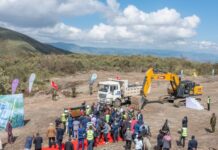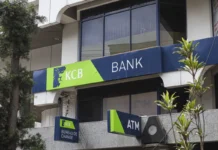Kenya Airways is fighting to keep a Sh310 million deposit it made with US plane maker Boeing Corporation for aircraft purchases after the preservation period expired, rendering the deposit non-refundable.
The airline disclosed in its annual report for the fiscal year ending December 2022 that it risks losing millions of shillings because deposits for plane purchases are not refundable if a carrier fails to purchase the planes.
The loss-making airline has set aside Sh310 million from its profits to cover an expected liability for failing to purchase the unnamed planes.
The deposit increased from Sh280 million in 2021, though the airline did not specify whether this was due to additional cash or exchange rate fluctuations.
In the face of stiff competition from rivals such as Ethiopian Airlines, the national carrier planned to order new planes worth billions of shillings to supplement its fleet of Boeing and Embraer planes and grow its business.
However, years of losses and a negative equity balance sheet have made it difficult for Kenya Airways to proceed with plane purchases. To save the deposit, the cash-strapped airline is looking into extending the preservation period for the plane orders.
“The deposits paid towards acquisition of aircraft represent amounts paid to Boeing Corporation for the option to purchase aircraft in the future,” said KQ in the report.
“A provision of Sh310 million was made in the year as a result of expiry of a purchase option the company had in place with Boeing Corporation. The company is, however, in talks with Boeing to further extend the validity of the options.”
If the US firm refuses to extend the option’s validity, KQ will be forced to write off the Sh310 million provision, further reducing its bottom line.
By the end of last year, the airline had Sh3.7 billion in deposits for leased aircraft on its books. KQ also reported that it received a Sh3.24 billion refund after terminating a lease for a Boeing 777-300 plane during the year.
It has also announced plans to terminate the lease for its other two Boeing 777-300 aircraft, which are currently subleased to Turkish Airlines, saving the carrier between $25 million and $30 million (Sh4 billion).
After deducting the termination penalties owed to the company that leased the planes to KQ, the savings will be recognised. KQ has not purchased additional aircraft in recent years after experiencing financial difficulties, instead leasing out planes and terminating some leases in an effort to reduce costs.
A decade ago, the airline was regularly acquiring new planes from Boeing as part of Project Mawingu, which aimed to solidify KQ’s strategy of connecting African travellers to the rest of the world via its Nairobi hub.
The plan, which called for the airline to serve approximately 115 destinations by 2021, required the carrier to purchase additional aircraft, bringing its fleet total to more than 100.
The plan, however, came to a halt when the airline began to incur losses and eventually negative equity, forcing it to rely on government bailouts on a regular basis to stay afloat.
External shocks, such as the Ebola outbreak in West Africa between 2014 and 2016, which forced the cancellation of flights to key destinations such as Sierra Leone, cost the airline millions of dollars in revenue.
Locally, a wave of terror attacks during that time period reduced tourist arrivals, hurting the airline’s bottom line. The airline lost money for the tenth consecutive year in 2022, more than doubling its net loss from Sh15.87 billion in 2021 to Sh38.26 billion.
The increase in net loss was primarily due to a Sh18 billion finance cost that was passed through the income statement after the government took over the servicing of the airline’s $525 million (Sh70 billion) dollar-denominated debt after it defaulted on payment.
When the government converted the loan from dollars to shillings, the company was forced to pass the resulting exchange losses through its profit and loss account.
The debt is now recorded on KQ’s books as a shareholder loan from the government. Due to the one-time nature of the financing cost, KQ stated that it expects to return to profitability by 2024, something it has not done since 2012, when it reported net earnings of Sh1.66 billion.
The airline’s total revenue increased by 66% to Sh117 billion as passenger numbers increased by 68% to 3.7 million and cargo business uplift increased by 3.5 percent to 65,955 tonnes.
Total operating costs increased by 59% to Sh122.4 billion, with direct operating costs increasing by 94% due to increased operations and massive global fuel price increases throughout the year.



















